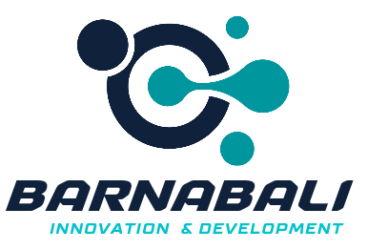Market Research and Lead Generation for Specific Products
Thorough market research and effective lead generation are fundamental to the success of any business, particularly when dealing with specific products. Understanding market trends, consumer behavior, and competitive analysis allows companies to make informed decisions, ensuring their strategies are aligned with current market dynamics.
Market research involves collecting and analyzing data related to the target market, including demographic information, purchasing habits, and preferences. By leveraging digital technology, businesses can access vast amounts of data, enabling them to identify patterns and trends. Data analytics tools facilitate the processing of this information, providing actionable insights that can be used to tailor marketing strategies and product offerings to meet consumer needs more effectively.
Lead generation, on the other hand, focuses on identifying and nurturing potential customers. This process begins with creating a detailed profile of the ideal customer, often referred to as a buyer persona. Digital tools and platforms play a crucial role in lead generation, offering capabilities such as automated email campaigns, social media marketing, and search engine optimization (SEO) to attract and engage prospects.
Nurturing relationships with potential leads involves continuous engagement through personalized content and targeted communication. Marketing automation tools can streamline this process, ensuring timely follow-ups and consistent messaging. For instance, Customer Relationship Management (CRM) systems help track interactions with leads and manage communication, enhancing the efficiency of sales teams.
Real-world examples demonstrate the efficacy of these strategies. For instance, a technology company leveraged data analytics to identify a growing trend in artificial intelligence solutions. By aligning their product development and marketing efforts with this trend, they successfully captured a significant market share. Similarly, a retail business used targeted social media campaigns to generate leads, resulting in a substantial increase in conversions and sales.
In conclusion, the integration of digital technology in market research and lead generation processes is indispensable. Tools like data analytics, CRM systems, and marketing automation not only enhance efficiency but also ensure that businesses can make data-driven decisions, ultimately leading to better market positioning and increased revenue.
Commercial & Logistics Documentation Support for Export & Import Business
In the dynamic realm of international trade, commercial and logistics documentation plays a pivotal role. Accurate and comprehensive documentation is essential for the seamless movement of goods across borders, ensuring compliance with regulations and avoiding costly delays and penalties. Various types of documentation are required at different stages of the export and import process. These include invoices, packing lists, certificates of origin, and bills of lading, each serving a specific function in the logistics chain.
Invoices provide detailed information about the goods being shipped, including their value and terms of sale. Packing lists offer a detailed breakdown of the contents of each shipment, facilitating customs inspections and inventory management. Certificates of origin confirm the country where the goods were manufactured, which is crucial for determining applicable tariffs and trade agreements. Bills of lading serve as both a receipt for the goods and a contract between the shipper and the carrier, outlining the terms for the transportation of the goods.
International trade is governed by a complex web of regulations and standards that vary by country. This complexity underscores the importance of accuracy and compliance in documentation. Errors or omissions can lead to significant delays, financial penalties, and even the rejection of shipments. To mitigate these risks, businesses must stay informed about the requirements of the countries they are trading with and ensure that their documentation is thorough and precise.
Digital solutions and technology have revolutionized the way businesses handle commercial and logistics documentation. Electronic document management systems streamline the creation, storage, and sharing of documents, reducing the likelihood of errors and improving efficiency. Automated systems can also help ensure compliance by validating documents against regulatory requirements and flagging potential issues before they become problems.
Adopting best practices in documentation management is crucial for success in international trade. Businesses should implement standardized procedures for preparing and reviewing documents, invest in training for staff involved in the documentation process, and leverage technology to enhance accuracy and efficiency. By doing so, they can navigate the complexities of international trade with confidence and minimize the risks associated with commercial and logistics documentation.

